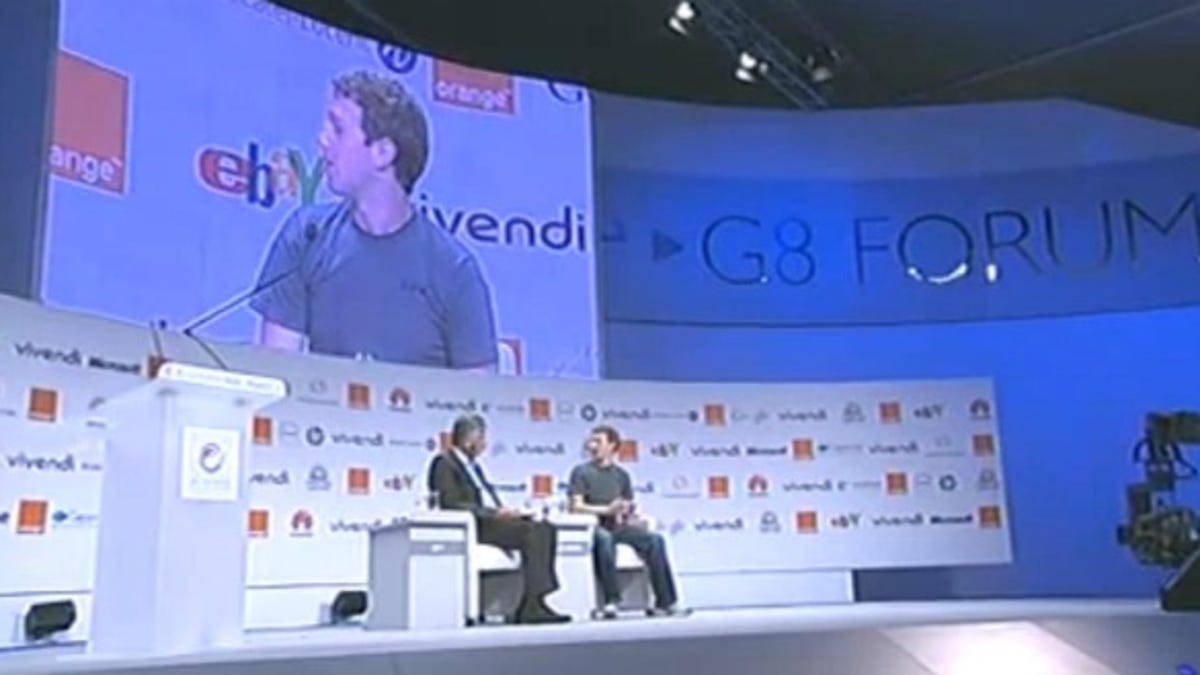Zuckerberg: Privacy anxiety is fleeting
New features may initially give Facebook users a fright but quickly become the norm and what people expect to find, Facebook's CEO tells audience at G8 forum.

Facebook products in the past have created controversy over privacy, but people get used to new features that initially scare them, founder Mark Zuckerberg has told the e-G8 Forum.
Facebook services that have increasingly allowed "friends" to keep track of each other have drawn criticism from users, who then begin to use them, Zuckerberg told the e-G8 Forum conference in Paris this week.
"We'll roll it out, and pretty often there'll be this backlash, and people will say, ok, we don't like this new thing," said Zuckerberg. "It's I think a real anxiety. People were really afraid of more people being able to be involved in the social network."
Zuckerberg said that 1 million people, or 10 percent of the Facebook user base, in 2006 protested against Facebook's news feed service, which gives updates about what "friends" are doing.
"People thought that, you know, it was just too much, right, they wanted to share stuff on the site but they didn't want it to be so much in people's face," said Zuckerberg. "You know now it's just part of the site that I think most people in a way would be like 'What's going on? How can there be Facebook without this?'"
Zuckerberg said that Platform, which gives third-party developers access to people's "friends," was "fairly controversial." He said that Facebook took steps so that "everything is under good control, and there isn't a lot of abuse."
He added that "one of the good things about the Internet is you can just kind of build something, and people will choose to use it or not, and that's how we win debates."
Privacy campaign group Privacy International told ZDNet UK on Wednesday that Zuckerberg should recognize that privacy encroachment can become normalized.
"Human behavior is peer-driven," Privacy International director Simon Davies said. "People will go along with what their peers believe is the norm. People will continue to feel uncomfortable about sharing information, and it won't do Facebook any favors in the long term not to recognize that."
Davies said it was possible to have strong privacy safeguards and still have fluid data sharing.
Also during the G8 forum, Zuckerberg addressed the topic of pro-democracy uprisings this spring in a number of Arab countries, and the role of social media in political movements.
"People tell me: 'It's great you played such a big role in the Arab spring, but it's also kind of scary because you enable all this sharing and collect information on people,'" Zuckerberg said, as quoted in the U.K.'s Guardian. "But it's hard to have one without the other. You can't isolate some things you like about the Internet, and control other things you don't."
This story initially appeared on ZDNet UK under the headline "Zuckerberg: People vote with feet on privacy." CNET's Jonathan Skillings also contributed to this story.